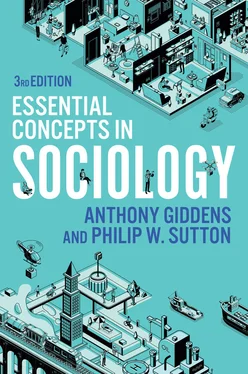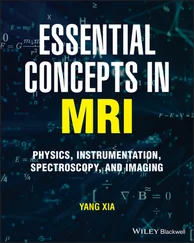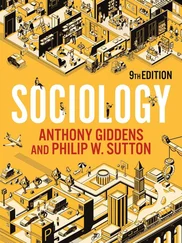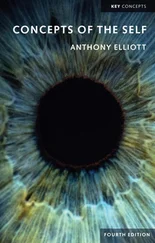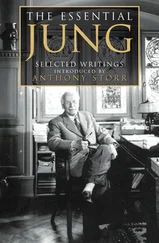References and Further Reading
Durkheim, É. ([1893] 1984) The Division of Labour in Society (London: Macmillan).
Elias, N. ([1939] 2000) The Civilizing Process: Sociogenetic and Psychogenetic Investigations (Oxford: Blackwell).
Jenkins, R. (2002) Foundations of Sociology: Towards a Better Understanding of the Human World (Basingstoke: Palgrave Macmillan), esp. chapter 3.
Urry, J. (2000) Sociology Beyond Societies: Mobilities for the Twenty-First Century (London: Routledge).
__ (2007) Mobilities (Cambridge: Polity).
Walby, S. (2020) ‘Developing the Concept of Society: Institutional Domains, Regimes of Inequalities and Complex Systems in a Global Era’, Current Sociology , July: 1–18. https://doi.org/10.1177%2F0011392120932940
Williams, R. (1987) Keywords: A Vocabulary of Culture and Society (London: Fontana).
THEME 2Doing Sociology
Ideal Type
Working Definition
The researcher’s ‘pure’ construct of a social phenomenon, emphasizing only some of its main aspects, which is used to approach the similarities and differences in concrete, real-world cases.
The concept of the ideal type was devised by Max Weber as part of his method for studying social action as a form of sociology. For Weber, understanding and explaining social life was not possible using the same methods as the natural sciences. Human beings, unlike other beings in the natural world, create a meaningful environment, and to understand their individual actions we have to set these within the context of that social environment. Of course, people create organizations and social institutions, which some sociologists see as their main object of research, but Weber ([1904] 1949) argued that a full account of social phenomena has to be understandable at the level of individual action. This approach to sociology is known as Verstehen , and Weber used it to explore the origins and key aspects of capitalismand its relationship to religious belief, the different types of economic life across societies, types of authorityand leadership, and forms of organization in different historical periods. Constructing ideal types was an important element of Weber’s method that allowed him to bring together the macro and micro levels of sociological analysis.
Meaning and Interpretation
Ideal types are ‘constructs’ – that is, they are created by researchers on the basis of criteria derived from their interest in a particular social phenomenon. For example, we could construct an ideal type of socialism, democracy, cybercrime, consumer societyor moral panic. However, in making the construct, we do not aim to combine as many aspects of the phenomenon as possible in order to produce an accurate depiction of it. Because, Weber argued, sociology cannot replicate the experimental methods of the natural sciences, we need to find other ways of gaining valid knowledge of society, and the ideal type is one useful tool which helps us do that.
For example, if we want to understand the ‘new terrorism’ of al-Qaeda networks and the self-styled Islamic State ( Daesh ), we can identify some typical aspects from our observations – perhaps their global connections, loose organizational forms, disparate aims and preparedness to use extreme violence against civilian targets (Lister 2015). Then we can create our ideal type around these central features. Of course, real cases of the new terrorism will include more than just these elements, and, in some cases, one or more elements may be absent while others are more prominent. For example, Daesh actions in Syria and Iraq involved creating an effective army, rather than a loose network, that succeeded in temporarily taking and holding territory. However, in creating an ideal type we are intentionally creating a one-sided model, a pure form, which probably does not or could not exist in reality. Those people, cells and organizations involved in the new terrorism may actually behave in ways that diverge from our ideal type. But the point of the exercise is to highlight a logically derived form of the new terrorism which will enable us to compare it with older forms and pick out significant similarities and crucial differences among real-world cases much more easily. Ideal types are heuristic devices – research tools that sociologists use to devise hypotheses and make comparisons.
An ideal type is akin to a standpoint from which we can observe the social world, a reference point that enables the researcher to begin to formulate some realistic questions about the phenomena in question. Hence, ideal types can never be said to be true or false, and it was not Weber’s intention that they should be tested against empirical cases in the same way that might be the situation with scientific hypotheses, and then falsified if negative instances are found. Their value lies in the research that flows from them and the contribution they make to our understanding. If ideal types fail to give us any better grasp of reality or just do not work in generating further research questions and studies, they will simply be abandoned as, simply and literally, useless.
Weber’s critics see ideal types as being of limited use in sociology. Norbert Elias, for instance, caustically remarked that it was strange to think we should spend our time constructing ideal types when we can study ‘real types’ or empirical cases instead. This criticism seems a good one, though we have to remember that ideal types are meant to be ‘sensitizing concepts’, one of the preliminary stages of research, which will then develop into formal empirical studies.
A further problem with ideal types lies more in the way they are used than in the concept itself. In particular, what starts out as a heuristic device to aid understanding can quickly become a real characterization that needs to be defended. In short, a fictitious ideal type comes to be treated as though it represents a real social phenomenon and, instead of aiding understanding, becomes an obstacle to it. Talcott Parsons observed this slippage even in Weber’s own work on ‘capitalism’, in which he moves between the construct and the unique historical form. In Parsons’s view, the ideal type is useful when identifying general aspects of social phenomena for comparative studies, but much less so when investigating unique historical periods and cultures, which demand detailed empirical investigation.
Ideal types are still used in sociology, as is evident when new social phenomena emerge which sociologists do not fully understand. However, some sociologists return to Weber’s own work in order to extend it, fill in the gaps or take it in new directions. For instance, Załęski (2010) notes that Weber’s typology of religious attitudes towards the world is often ignored or downplayed in accounts of his work. And, in exploring its contemporary utility, he attempts to logically extend it.
Weber’s typology covers inner-worldly asceticism, world-rejecting asceticism and world-flying mysticism. Inner-worldly asceticism (such as Puritanism and Calvinism) involves striving ‘to make the world fulfil religious demands’ (Załęski 2010: 320), world-rejecting asceticism (Christian ascetics and anchorites) holds that the world is religiously worthless, leading to the rejection of what this world has to offer, while world-flying mysticism (in Buddhism and Brahmanism) occurs where followers use, say, meditation as a route to higher states of consciousness. Załęski introduces a fourth religious ideal type of world-active mysticism, such as animistic mysticism, voodoo rituals or the manipulation of spirits. And, though Weber did not regard this type as significant, Załęski sees it as actually very common today in the form of ‘new age’ beliefs and practices and beliefs in angels or demons and even extraterrestrials, all of which are thought to influence or shape real events in this world. Becoming involved in these kinds of mystical encounter allows people to feel that they actively ‘co-shape reality’.
Читать дальше
